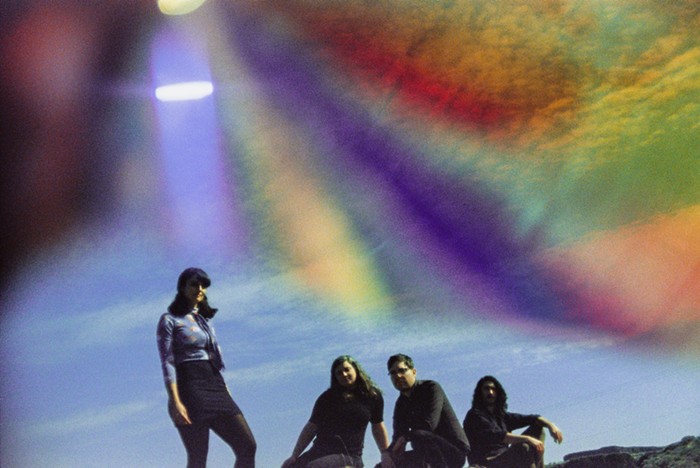For a Marxist critic such as myself, Red Bull Music Academy poses a theoretical problem: How can an art institution be linked to corporate capital and still be a site of real innovation? Isn't it a fact that what matters first to a corporation is profit, and that this imperative will ultimately open a trapdoor beneath any creative endeavor that fails to make money? The problem is made more difficult when an institution such as Red Bull Music Academy actually encourages and generates work that has no real immediate commercial value, work that is as experimental as anything else produced outside of the sphere of corporate sponsorship. To better understand the substance of Red Bull Music Academy, you have to abandon old notions about the relationship between capital and culture and create new theoretical tools.
Chuck D of Public Enemy once stated: "I like Nike but wait a minute/The neighborhood supports, so put some money in it." This is probably the best starting point for the journey toward an understanding of Red Bull Music Academy. Now in its eighth year, the transient institution has traveled all over the world—Europe, South America, Africa—on an ambitious mission to connect a variety of urban locations as well as 21st-century computer-processed music with 20th-century composers and recording technologies. The school exposes its students—there from around the world on scholarship—to world-renowned hiphop DJs, techno producers, old-skool composers, and advanced recording programs; it also exposes its host city to the music of our post-human futures—a globalized, electronic-based sound that has no geographic center. The academy might very well be an excellent example of a corporation putting money not so much into a community (as Chuck D suggested) but into the network that connects the music of, say, Seattle's Kid Hops with the music of Berlin's Basic Channel.
Located this year in a large Belltown loft space, the academy isn't an isolated, self-contained island of beat nerdz. It is attempting to establish a relationship with its surroundings, which is what the Red Bull ArRange concert is really about. Within the academy, students are exposed to composers of the past and programmers of the present, and ArRange is a large-scale demonstration of the academy's defining principle—to unite the old skool with the new skool. But this extravagant demonstration (which will employ 36 classical musicians and a funk/jazz rhythm section to perform sample-based interpretations of mid- to late-20th-century compositions by contemporary producers) can easily amount to something that only sounds good in theory. This, however, is not the case.
The old skool in this experiment are disco producer Deodato, jazz arranger Clare Fischer, and funk composer David Matthews; the new school are Detroit techno masters Underground Resistance, downbeat fuser Kirk Degiorgio, and hiphop wizard Oh No, who is Madlib's younger brother and Jay Dee's heir apparent. Bob Power, the producer/engineer behind one of the greatest hiphop albums of all time, A Tribe Called Quest's Midnight Marauders, is appointed to shape this massive, complex endeavor into one three-hour performance in McCaw Hall.
So far, the parts that are being assembled for this big production sound great. Oh No's interpretations are simply wondrous. Using that beat drop (or slip) and bubbly bass invented by Jay Dee, he loops the samples into forms that fade in and out of consciousness like a dream. Kirk Degiorgio's pieces are defined by the word lush, and Underground Resistance reprocess the material into hypnotic, polyrhythmic, horizontal grooves that are powered by a radical political agenda that's completely at odds with the profit imperatives of corporate power.
Those who watched DJ Spooky's most recent collaboration with Seattle Chamber Players will have an idea of what to expect from this event—a spectacle that, even if it fails, will be impressive.



















